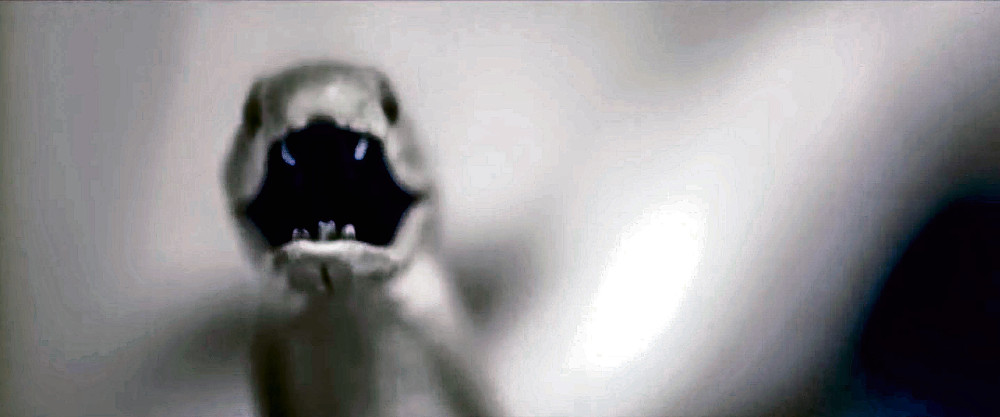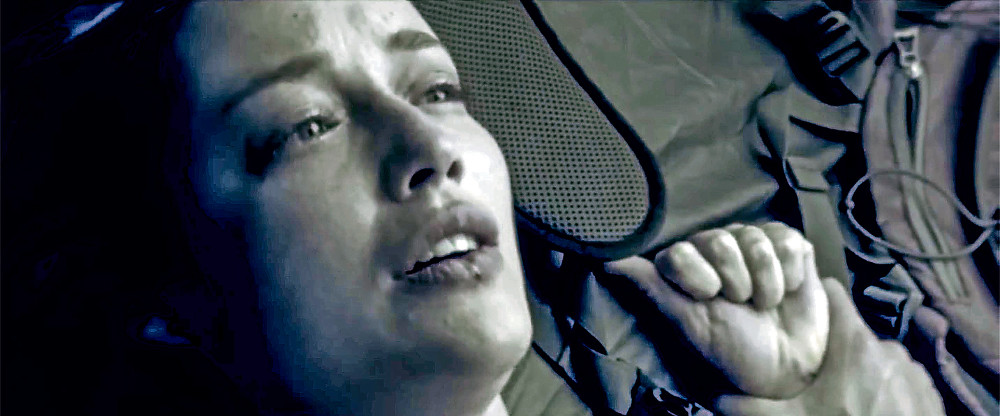Snakes
In times like these, as we watch the slow grinding down of civilisation into a neofeudalist wasteland of trash-adorned barbed wire fences, rising food prices and fidget spinners, we need to be grateful for small reprieves from the demands made on our dwindling expendable resources. Time is money and cinema tickets are expensive. Relinquishing the need to see a film because the trailer has achieved a level of transcendent greatness that could not be surpassed by the film itself is a welcome kind of blessing.
Movie trailers are an art in themselves: they are the haikus of the film world — succinct, delicate distillations of the essence of narratives. Dues are owed to those who advance the medium to new heights and the team behind the trailer for Serpent — recently announced to be opening the Durban International Film Festival in a few weeks’ time — is surely such masters of form.
Such outright brilliance deserves the most rigorous critical attention to mark for posterity this monumental moment in the canon of South African cinema. Here, I offer my insight, if only to be able one day to say to my grandchildren that I was there. That I was a part of history.
Where to start?
First, by looking up the trailer on the UHM channel on YouTube. That stands for Upcoming Horror Movies. If the three comments in the thread below the video can be read as a sample of things to come, Serpent, like so many masterpieces, is likely to divide audiences.
Whereas user “J” says: “I would give it a try, seems like a good movie,” user “Robert” is slightly less enthusiastic, offering: “Oh my, this looks fucking stupid.” (The third claims not to be spam, but I suspect this is a fib.)
But let us not be swayed by such passionate popular opinion, and rather apply the clinical scalpel of aesthetic analysis to the task at hand.
Following the first, very inventive aerial shot of the cityscape, we find ourselves in the bathroom of an ample-breasted woman in just her underwear as she readies herself for the shower. Her ablutions are rudely interrupted by a stream of unanswered, increasingly threatening texts from a guy she has been trying to ignore.

Stalker-Bro seems a little like he can’t take a hint. Here appears the first title card in bold, jagged capital letters: “AN UNFAITHFUL WIFE”. A bit of a surprising take on the unfolding scenario, I must say. Personally, I might have gone with something more like: “TOTAL CREEPER GIVES WOMAN THE HEEBIES”, but what do I know? Everyone’s a critic.
We’re only a few seconds into this journey, though. Let’s see where this goes.
Commence tense, staccato music, demonstrating an impressive grasp of cliché and stock music key search terms.
Over the slowly building tension, we meet our next protagonist — the husband — whom we assume is an entomologist from the cutaways of diagrams and books, but whose side occupation must be ventriloquism because his muffled, overdubbed speech seems to emanate alternately from the room in which the couple’s romantic moment takes place and from inside the boot of a car nearby.
It seems he’s leaving First World comforts indefinitely and the wife, perhaps spooked by the attention of Stalker-Bro, sees this as an opportune moment to make an escape. “Take me with you,” begs our female lead, who clearly has nothing better to do with her time than to traipse through the jungle behind her husband looking for bugs.
Next title card: “A TROUBLED MARRIAGE”, which wasn’t obvious at all from the weird, toxic co-dependent vibes.
More aerial shots to establish two vulnerable white people venturing forth into the classical image of deepest, darkest Africa — an important image of the continent to keep alive in the 21st century.
Science-Hubby warns us, apparently from inside the car boot again: “Where we’re headed, it’s isolated, dangerous.” “Full of all the creepy-crawly nature stuff?” she asks. “Well, there’s no phone reception.” That’s pretty creepy, yeah. But also, maybe try getting out of the boot?
Backseat-driving their generic bundu-bashing Landy, he man-splains the way to their destination: “See the sign for Suicide Gorge? Follow that sign.” And in case you didn’t quite catch that, the next shot considerately sees them driving past a fake sign that spells out this warning for anyone who might have missed it.
“Careful — the snakes are out this time of year,” we are told, as we are thrust through the landscape in yet another swooping aerial shot. Good use of drones. Very contemporary.

Time for a shift in mood. Darkness and a heavy-handed religious metaphor for the intrinsically corrupt nature of femininity set in. From inside their two-man Campmaster, our Adam and Eve hear the slithering sounds of an unwanted visitor. Pounding heartbeat, close-up on eye. “Black mamba!”
Luckily, Science-Hubby knows exactly what to do: “I’m gonna distract him with your phone,” he says, his trans-species bro-dar allowing him to detect at a glance with perfect accuracy that he has a gender in common with the reptile. This is an ingenious plan.
With the light from the phone brightening the tent, he further displays his dexterity and ability to multitask by taking the opportunity of the life-threatening encounter to pry through his wife’s personal business, flicking through her stalker’s texts while taking command of the situation like a good alpha male.
More bold lettering: “A HUSBAND BETRAYED”. Credit to the writers for putting the adjective after the noun — much more dramatic. The snake pops up as if it’s arrived directly from Loony Tunes, with deep, cartoonish intent in its eyes. Our poor victim/heroine is now trapped in the worst scenario possible — being stuck in a small space with two dudes making “Come at me, bro!” gestures — that’s until Science-Hubby summons the stunning wherewithal to wrap the snake in a sleeping bag and throw it out of the tent.

Final title cards: “COME FACE TO FACE … WITH TERROR”, and bam! The film’s title appears against a background of not-at-all-melodramatic blood-soaked gauze.
Who knows — maybe our heroine vanquishes the not-so-subtly metaphorical snake and wins out, but one thing that seems clear is she has brought this set of circumstances on herself for being a bad, unfaithful woman. Such moral misdeeds as becoming the unwilling object of fetishistic desire for some phone-creep cannot go unpunished.
According to the festival press release, the Anant Singh-produced film, directed by Amanda Evans, has been selected to open the festival based not only on its (very obvious) merit, but also its “strategic correctness”, because the film stands as a shining example of how to get picked up by Sony and be consumed as video on demand for stoned American teenagers to watch while dripping pizza grease on their shirts at 2am.
Someone call director Barry Jenkins and tell him to make room in his limo to the Oscars next year.